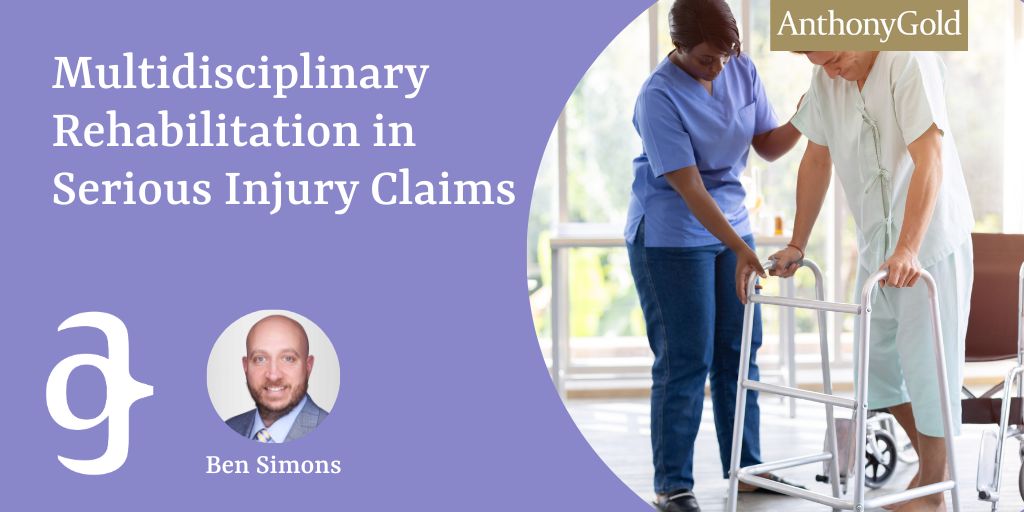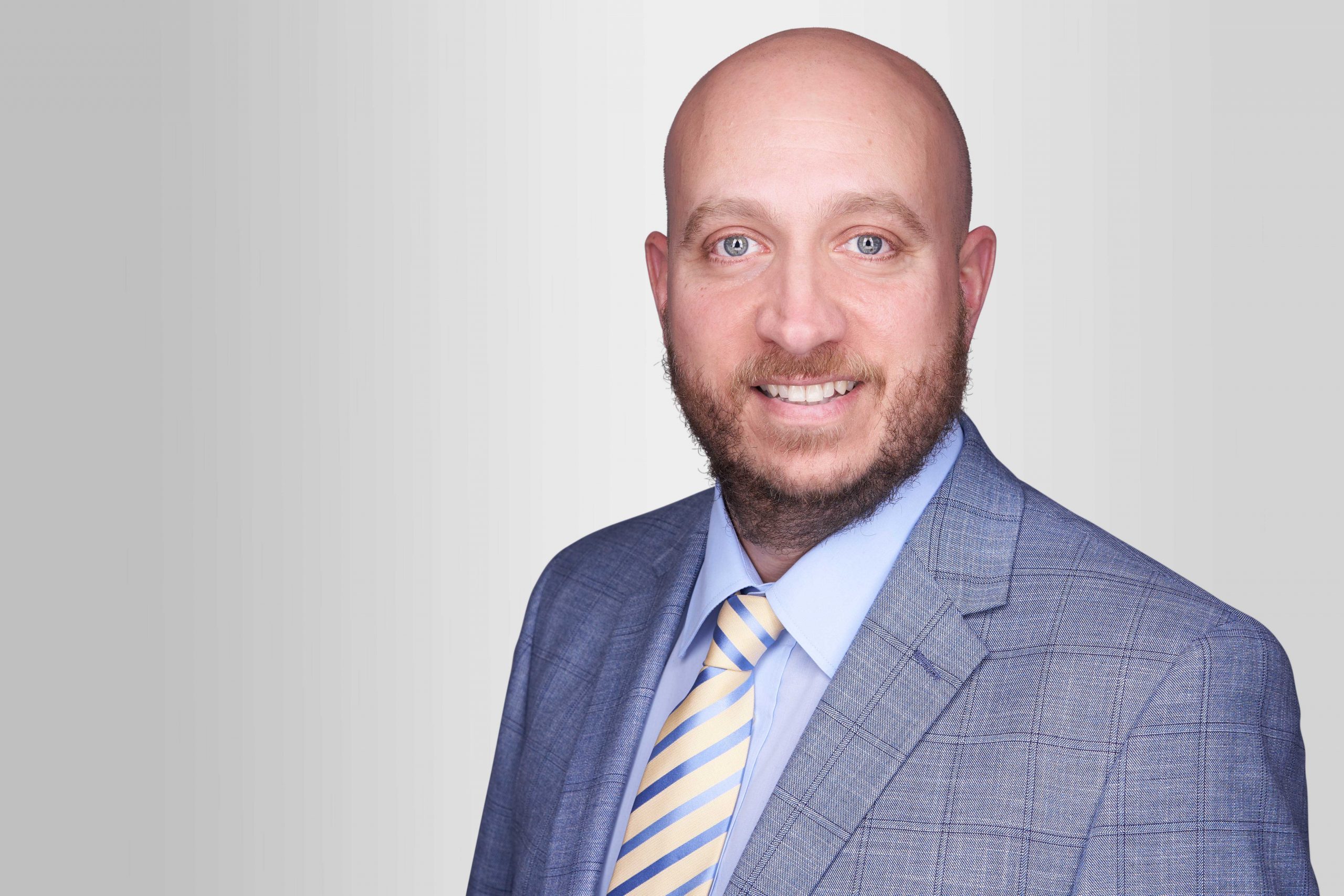Multidisciplinary rehabilitation in Serious Injury claims

Following a very serious accident, in which someone has suffered significant, sometimes life-changing injuries, the road to recovery can be long and complicated, requiring extensive rehabilitation. There will always be many facets to rehabilitation, for example, physiotherapy to address orthopaedic injuries, neurorehabilitation to address issues arising from a traumatic brain injury and psychotherapy to address the psychological effects of having suffered such a traumatic event.
Often, the nature of injuries suffered in a very serious accident can have major and long-lasting effect, not only upon the life of the injured party, but also their family. For any injured person, the focus is always to regain some form of normality and independence. To have the best chance of achieving this, rehabilitation needs to be interdisciplinary, with multiple providers working together.
An integrated, multidisciplinary approach involves a team of therapists, clinicians and specialists working in an interdisciplinary way, coordinating their respective treatment plans to maximise the patient’s recovery.
For example, if a seriously injured person undergoes physiotherapy but their mental health is not addressed, this will hamper the physical recovery. Similarly, if psychological support is offered as a standalone therapy, but the impact of physical injuries is not addressed, the ongoing pain and restrictions to day-to-day life will in turn adversely affect mental health. This can lead to the injured person becoming trapped in a perpetual cycle of ineffective treatment and minimal improvement.
Consequently, it follows that a multi-faceted and interdisciplinary approach to rehabilitation provides the optimum opportunity for improvement.
Financial settlements are at the end of the rehabilitation journey. Effective rehabilitation is as important as the ultimate settlement and a key aspect to our role is to accompany our clients on their rehabilitation journeys, ensuring we are using the litigation process from a very early stage to help our clients reach their optimum recovery. Statistically it is known that early rehabilitation is more likely to lead to a better longer-term outcome.
The multidisciplinary team will vary from client to client. That is because it is specific to each individual, and dependent on their injuries. If a client has sustained a traumatic brain injury and the focus is on developing independent living, a team can be vast, often consisting of a team made up of neuropsychology, speech and language therapy, occupational therapy, neuropsychiatry, rehabilitative support workers. They all work together to ensure that the client’s goals are at the centre of any rehabilitation plan.
If an individual has significant orthopaedic injuries, a team may consist of physiotherapy, occupational therapy and often psychology of an individual is struggling to come to terms with changes to their life as a consequence of an accident. A key goal for clients is often a return to work. Many clients may need assistance with this, and vocational rehabilitation can play a central part in a rehabilitation programme.
A multidisciplinary rehabilitation programme is arranged and overseen by a rehabilitation case manager, who coordinate the treatment providers, regularly bringing them together to ensure they are working as one towards the client’s rehabilitation goals and also will keep us updated on our client’s progress by way of regular progress reports
Dealing with rehabilitation in a multidisciplinary way provides our clients with the best chance of maximising their recovery. Our clients feel fully supported by the knowledge that they have a team of specialists working towards their goals.
If you have suffered an accident, obtaining legal support may help you to obtain access to rehabilitation and an acceptance of liability for your injuries. Call our personal injury team on 020 7940 4000 if you wish to discuss making a claim.
* Disclaimer: The information on the Anthony Gold website is for general information only and reflects the position at the date of publication. It does not constitute legal advice and should not be treated as such. It is provided without any representations or warranties, express or implied.*
No comments